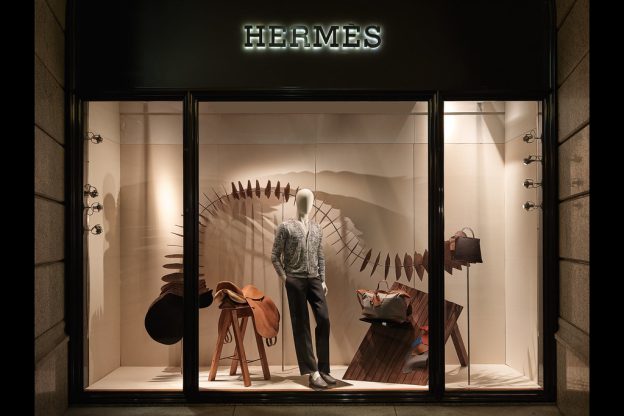Emma Shapiro – In the world of luxury fashion, where exclusivity reigns supreme, few brands command as much reverence as Hermès. The French luxury house has long epitomized elegance and sophistication, with its Birkin handbag standing as a beacon of status. According to a 2016 study conducted by BagHunter, the Birkin has had an average annual return of 14.2% since 1982, outperforming the S&P 500 with an average annual return of 8.7%. Central to Hermès’ strategy is the principle of scarcity, which significantly contributes to the Birkin bag’s appreciation in value in recent decades.
The Birkin’s elusive nature and high price tags, some of which exceed $100,000, have transformed it from a fashion accessory to a cultural phenomenon. However, the exclusivity that makes the Birkin so desirable has also become a point of contention, as some customers are excluded from acquiring the handbag due to Hermès’ sales policies. Birkin bags are not displayed in Hermès stores, nor are they sold online with Hermès’ other products. Customers must cultivate a rapport with a sales associate with hopes of being deemed worthy of being offered a Birkin.
A recent lawsuit, Cavalleri v. Hermès International, filed in California has brought to light Hermès’ enigmatic sales tactics regarding its Birkin bags. Plaintiffs allege that Hermès violates antitrust law by only selling Birkin bags to customers who have a “sufficient purchase history” of the brand’s other items. Specifically, the class action complaint alleges a violation of § 2 of the Sherman Act. The Sherman Act prohibits “monopoliz[ation] any part of the trade or commerce among the several states, or with foreign nations.” Plaintiffs’ further claim that “[d]efendants willfully and intentionally engage in predatory, exclusionary, and anticompetitive conduct with the design, purpose, and effect of unlawfully maintaining its market and/or monopoly power.”
In order to find a violation of § 2 of the Sherman Act, (1) the defendant must possess monopoly power in the applicable market; (2) the defendant must have willfully acquired or maintained monopoly power through exclusionary or anti-competitive conduct; (3) the defendant’s conduct must have caused harm to competition or consumers; and (4) evidence of specific intent of the defendant’s conduct to monopolize or achieve monopoly power. The lawsuit alleges that Hermès engages in “tying,” a practice where purchasing one product is conditional upon purchasing another. If a seller possesses market power and only sells a product on the condition that another product is purchased, a buyer is forced to buy the tie-in product alongside the tying product. In this case, customers are purportedly required to buy ancillary Hermès products to gain access to the Birkin bags, proving loyalty to the brand before receiving an exclusive offer.
Furthermore, Hermès’ compensation structure for its sales associates incentivizes the enforcement of these policies. Sales staff allegedly earn commissions on ancillary items but not on the Birkin bags, creating a financial incentive to steer customers toward additional purchases. This practice further perpetuates Hermès’ exclusivity and market dominance. For the Plaintiffs involved, the experience has been one of frustration and disillusionment. Despite the Plaintiffs’ substantial investments in Hermès products, they were unable to acquire a Birkin bag without committing to further purchases.
The Plaintiffs argue that Hermès’ unparalleled control over the supply and demand dynamics of the Birkin confers upon it an extraordinary level of market power. Market power is the ability of a company to increase pricing while simultaneously excluding competition successfully. When market power is wielded in conjunction with tying arrangements, § 2 of the Sherman Act is violated.
It will likely be difficult for the Plaintiffs to establish that Hermès has a monopoly. Hermès is not excluding competition, but rather upholding its exclusivity through these practices. This practice does not exclude other luxury brands from the market. For example, Chanel has significantly increased in sales, primarily in bags, in recent years as a result of their investment quality. Additionally, the Plaintiffs will have to prove that there is a tie-in arrangement, which will be particularly difficult as each Hermès customer has a unique experience. Some customers have had a relatively easy experience in obtaining a Birkin, while others have been rejected even after purchasing thousands of dollars in ancillary products. Arguing that the prior purchases of ancillary products are “tie-in” to a Birkin will be highly difficult to prove.


